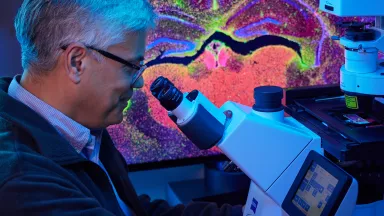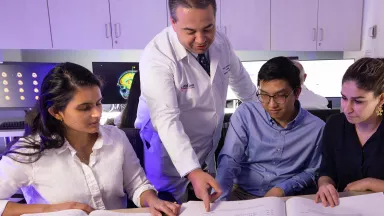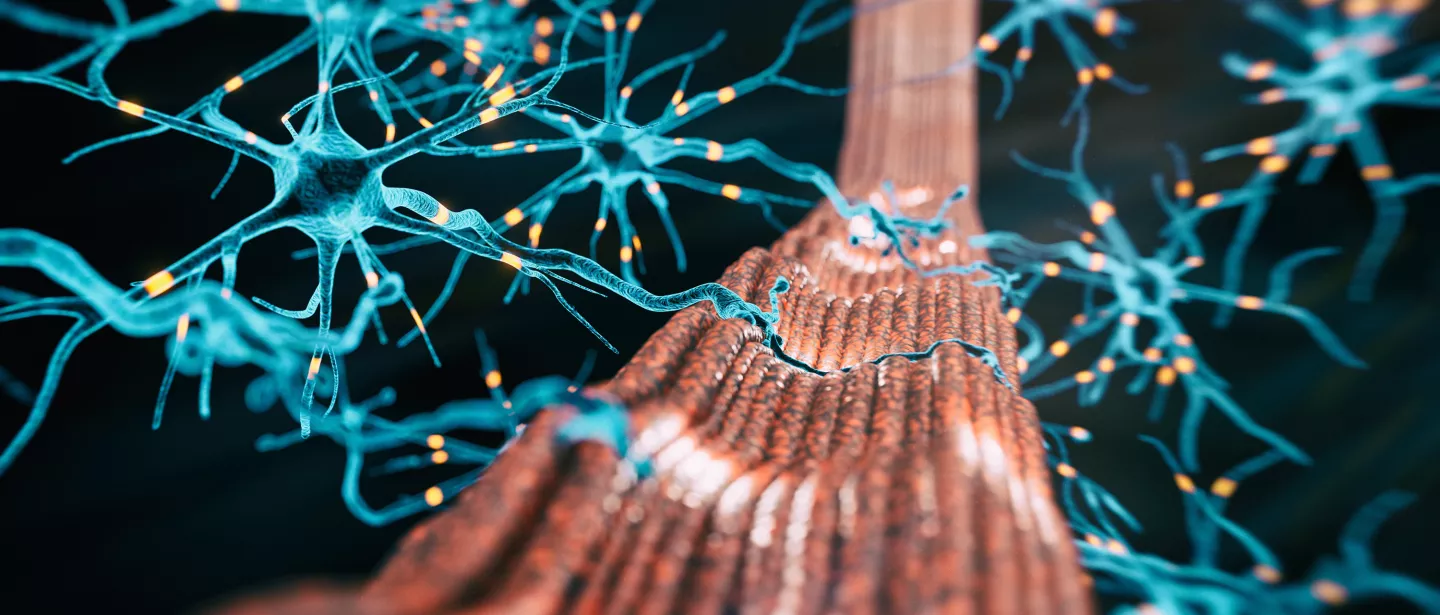Program Overview
At the Montefiore Einstein Division of Neuromuscular Medicine Research, our mission is to advance the treatment of diseases affecting the motor neurons, peripheral nerves and muscles. Our multidisciplinary team is made up of expert clinicians and scientists working collaboratively to investigate the causes and treatments of all types of neuromuscular diseases. We are dedicated to providing novel treatments and therapies to improve patients’ outcomes.
Areas of Concentration
The team at the Division of Neuromuscular Medicine Research engages in clinical investigation into the spectrum of disorders associated with peripheral nerve (neuropathies), neuromuscular junction (myasthenia gravis), muscle (myopathies) and anterior horn cell (motor neuron diseases). These include both acquired and inherited neuromuscular disorders in adults and children. Our goal is to advance clinical knowledge with the aim of improving the diagnosis and management of our patients with neuromuscular diseases.
Current Projects
Myasthenia Gravis
Social determinants of health (SDOH) are vital contributors to health outcomes, and better understanding their impact on individuals diagnosed with myasthenia gravis is critical to improving patient quality of life. Our expert research team is working to advance the understanding of the effects of SDOH in order to improve the design of patient support programs, using targeted approaches to remove barriers to access. In addition, we are working to better understand atypical presentations of myasthenia gravis.
Neuropathy
Our research team is working to better understand the most effective management for cryptogenic sensory polyneuropathy, a common, slowly progressive neuropathy that begins in late adulthood and causes limited motor impairment. Our neuropathy researchers are also investigating disorders of the cervical plexus.
Myopathy
We are investigating possible dietary sources of naturally occurring statins that could contribute to anti-HMGCR myopathy. Our researchers are also studying neuromuscular ultrasound as a noninvasive, cost-effective method for the detection of neuromuscular pathology. Ultrasound in children has the potential to guide EDx testing and ultimately improve diagnostic efficiency and accuracy.
Spinal Muscular Atrophy
Our research team is also focused on how newborn screening for spinal muscular atrophy impacts patient outcomes.






